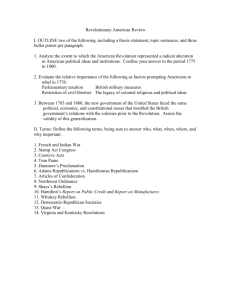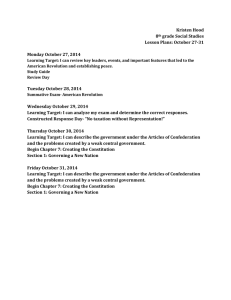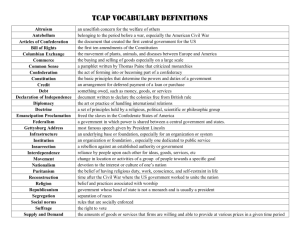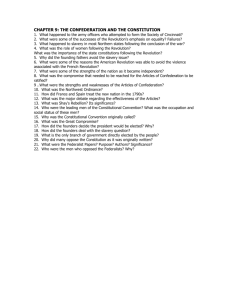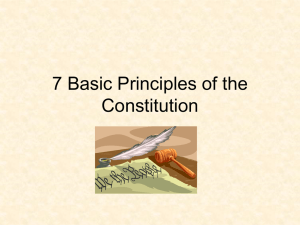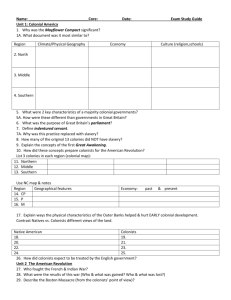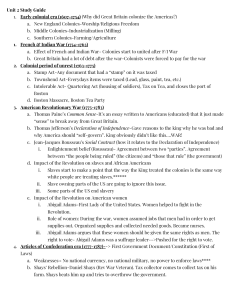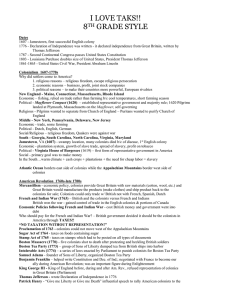17.037/17.038 American Political Thought Spring 2004 American Revolution
advertisement
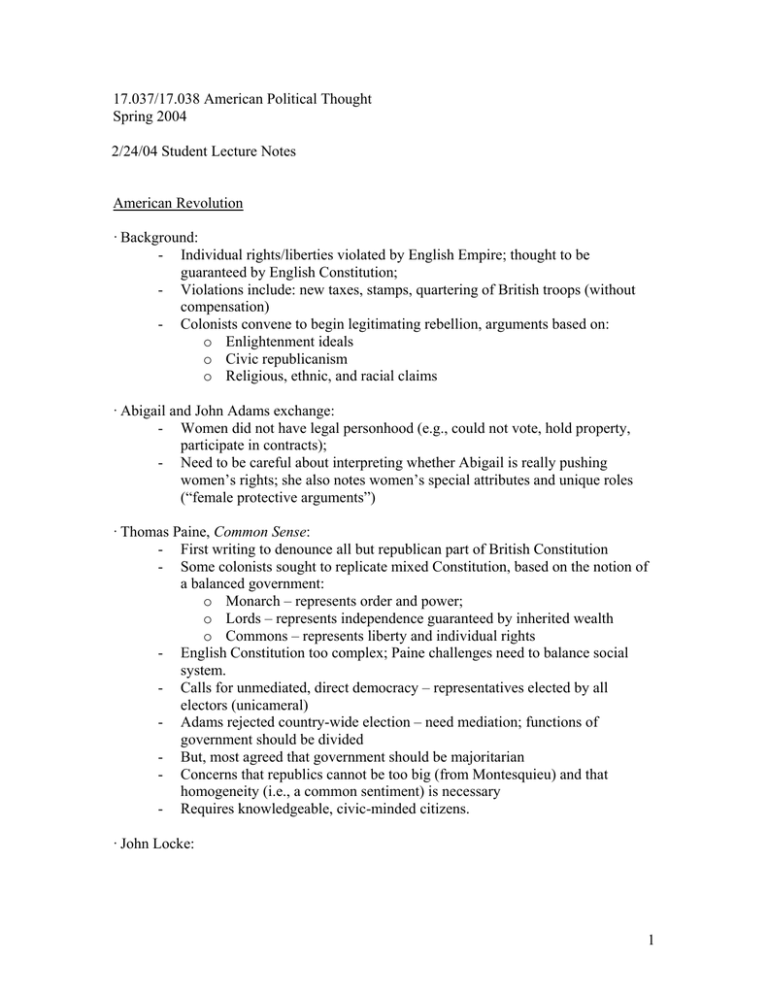
17.037/17.038 American Political Thought Spring 2004 2/24/04 Student Lecture Notes American Revolution · Background: - Individual rights/liberties violated by English Empire; thought to be guaranteed by English Constitution; - Violations include: new taxes, stamps, quartering of British troops (without compensation) - Colonists convene to begin legitimating rebellion, arguments based on: o Enlightenment ideals o Civic republicanism o Religious, ethnic, and racial claims · Abigail and John Adams exchange: - Women did not have legal personhood (e.g., could not vote, hold property, participate in contracts); - Need to be careful about interpreting whether Abigail is really pushing women’s rights; she also notes women’s special attributes and unique roles (“female protective arguments”) · Thomas Paine, Common Sense: - First writing to denounce all but republican part of British Constitution - Some colonists sought to replicate mixed Constitution, based on the notion of a balanced government: o Monarch – represents order and power; o Lords – represents independence guaranteed by inherited wealth o Commons – represents liberty and individual rights - English Constitution too complex; Paine challenges need to balance social system. - Calls for unmediated, direct democracy – representatives elected by all electors (unicameral) - Adams rejected country-wide election – need mediation; functions of government should be divided - But, most agreed that government should be majoritarian - Concerns that republics cannot be too big (from Montesquieu) and that homogeneity (i.e., a common sentiment) is necessary - Requires knowledgeable, civic-minded citizens. · John Locke: 1 - - - Most influential thinker underpinning American Revolution, writing in 17th century in opposition to Sir Robert Filmer who was a defender of the monarchy. Argues that men have natural rights o Freedom and property rights are independent and prior to form of government. Consent to follow laws; express and tacit consent Government is a trust; there is no real vertical contract b/w government and the people. The people can withdraw their consent when rights are violated; people have right to rebel. Even after successful rebellion, society or community of people still exists. · Republicanism: - Some argue American Revolution was primarily about republicanism, not liberal ideas; principle of republicanism was central to most American revolutionaries. - Other themes behind revolution: o Emphasis on common good o Virtues of citizens o Resistance to concentrated power; power yields corruption and complacency; importance of participation of people in politics · Problem of slavery: - Contradiction: revolutionaries used language of being “enslaved” to England. - Some simultaneous calls to abolish slavery. - Bernard Bailyn argues that people were conscious of slavery, while others suggest that it was separable. 2
